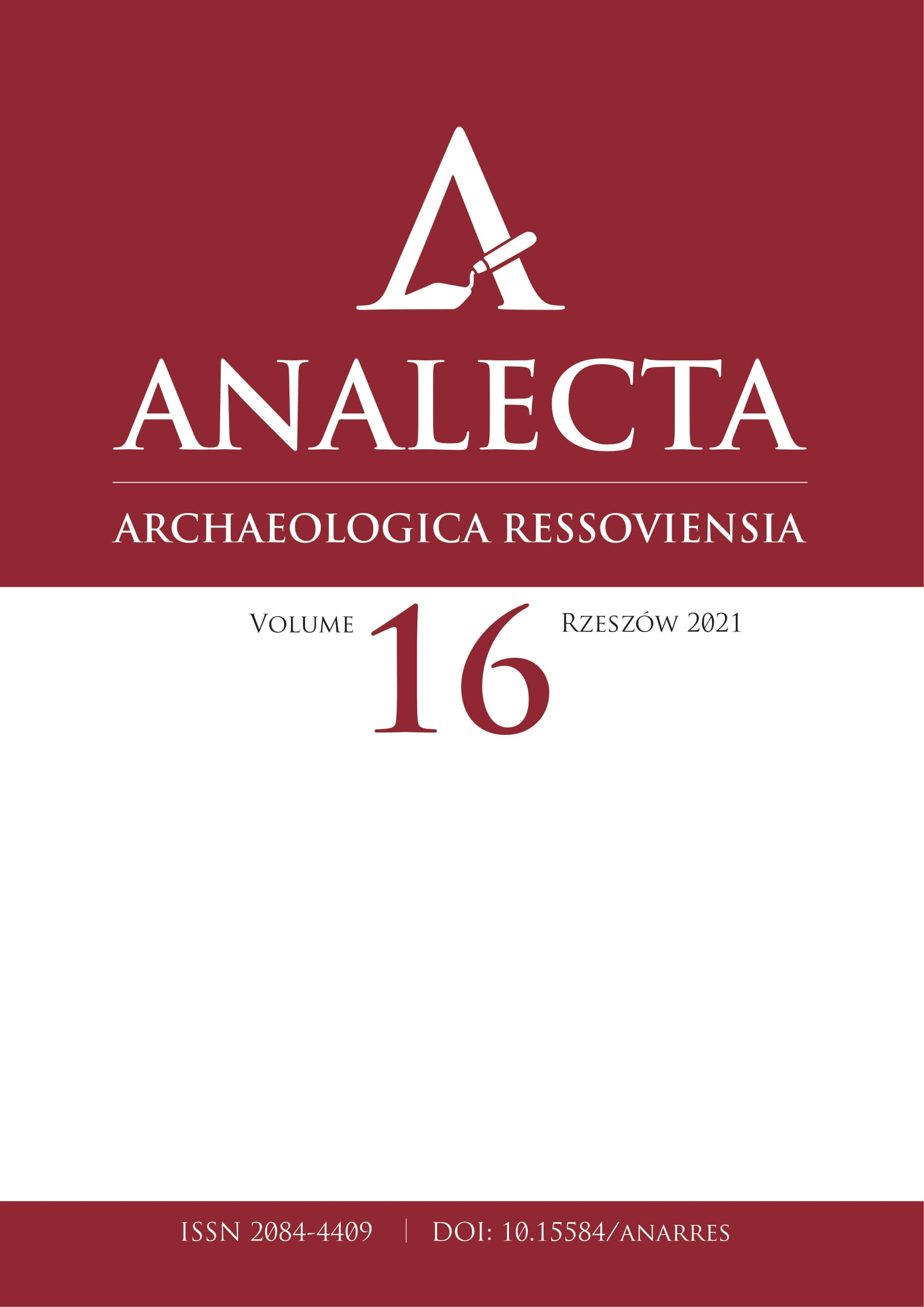Ten Years of Recruitment for Archaeology in Toruń – Candidate Profiles and the Student Recruitment Process. A Multi-indicator Data Analysis
DOI:
https://doi.org/10.15584/anarres.2021.16.1Keywords:
university pedagogy, academic education, youth, multi-indicator data analysis, Internet Registration of Candidates, enrollment for studies, archaeologyAbstract
The article is a research report on candidates for archaeological studies, for which the source of data was the Internet Candidate Registration (IRK) system of the Nicolaus Copernicus University in Toruń. The analysis was carried out on a sample of 695 people admitted to the first year of archeology at UMK, with the material covering the period from 2007 to 2017. It was
decided to build the profile of candidates for students based on six criteria: the size of the hometown and its distance from Toruń, gender, age of the candidates, completed secondary school, results of secondary school-leaving exams and recruitment decisions of candidates (priority system). As researchers, we had no influence on the set of data we had at our disposal,
the work was carried out using an already existing database, the primary purpose of which was not research or analyzes similar to ours. The text presents conclusions and generalizations based on proprietary tools for the analysis of the existing database. The conclusions, although they concern archeology itself and candidates for archeology, may be
a starting point for further analyzes of other majors. Archaeologists can use these outcomes to evaluate the condition of their discipline.
Downloads
References
Bardziejewska M., Brzezińska A. and Hejmanowski S. 2004. Osiągnięcia i zagrożenia dla rozwoju młodzieży w okresie dorastania. In A. Brzezińska and E. Hornowska (eds.), Dzieci i młodzież wobec agresji i przemocy. Warszawa: Instytut Badań Edukacyjnych, 91–106.
Bochenek M. and Lange R. (eds.) 2019. Nastolatki 3.0. Raport z ogólnopolskiego badania uczniów. Warszawa: NASK Państwowy Instytut Badawczy.
Dejna D. and Nalaskowski F. 2013a. Geneza i metodologia badań planow edukacyjnych młodzieży z Grudziądza i regionu grudziądzkiego. Kultura i Edukacja 3(96), 141–160.
Dejna D. and Nalaskowski F. 2013b. Publiczni i niepubliczni. Toruń: Wydawnictwo Uniwersytetu Mikołaja Kopernika w Toruniu.
Dejna D. and Nalaskowski F. 2015. Background przyszłych pedagogow. Na podstawie badań nad młodzieżą planującą podjąć studia pedagogiczne oraz badań nad studentami kończącymi pedagogikę. Przegląd Badań Edukacyjnych 2(21), 61–80.
Dejna D. and Nalaskowski F. 2020. Potencjał badań edukacyjnych bazy danych Internetowej Rejestracji Kandydatow – metoda analityczna desk research. Kultura – Społeczeństwo – Edukacja 18(2), 423–427.
Dejna D. and Nalaskowski F. 2021. Siła kandydata i siła motywacji jako wielowskaźnikowe narzędzie do opisu kondycji kandydatow na studia wyższe. Acta Universitatis Lodziensis. Folia Sociologica 78, 7–18.
Fromm E. 1995. Mieć czy być. Poznań: Rebis.
Grabowska M. and Gwiazda M. 2019. Młodzież 2018. Warszawa: Raport Centrum Badania Opinii Społecznej, Krajowe Biuro ds. Przeciwdziałania Narkomanii.
Wasilewski K. 2001. Wykształcenie w procesie komodyfikacji. Przegląd Socjologiczny 50(1), 171–189.
Wasilewski K. 2006. Społeczne zrożnicowanie uniwersytetu. Młodzież wiejska i wielkomiejska na UMK w Toruniu. Studia Socjologiczne 1, 119–153.
Ziółkowski M. 1995. Polacy – pragmatyzacja świadomości. Społeczeństwo Otwarte 1, 8–15.
https://www.umk.pl/kandydaci/niezbednik/faq, access: 10.02.2019
https://serwisy.umk.pl/dzorgan/z/nB8IDX/WNHist_2018_19.pdf, access: 29.01.2019
Downloads
Published
How to Cite
Issue
Section
License
Copyright (c) 2022 Analecta Archaeologica Ressoviensia

This work is licensed under a Creative Commons Attribution 4.0 International License.

